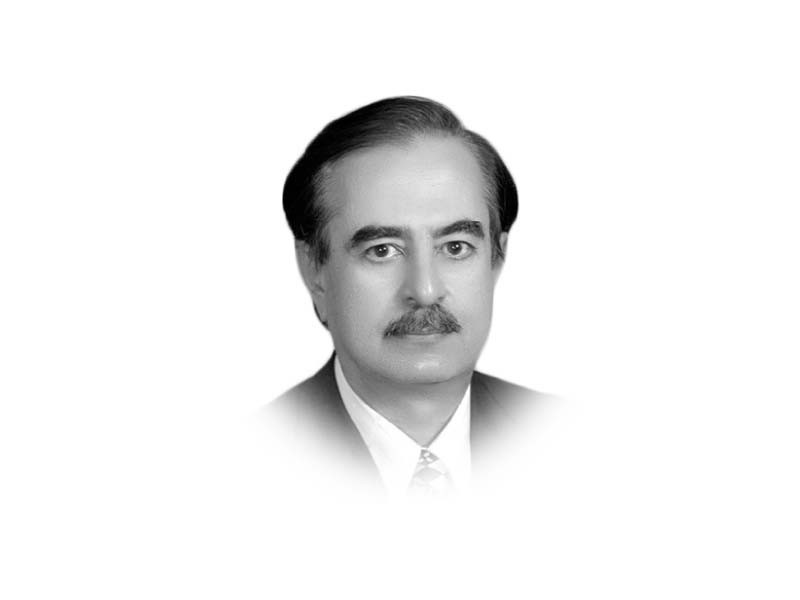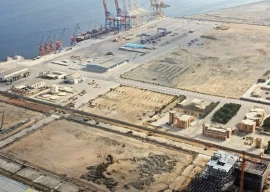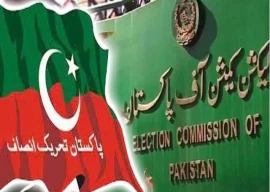
Of the many economic problems, inflation, at 17.3%, after peaking at 37.9% in May 2023, is one possessing the most perniciously widespread impact on the common man.
Classical economic theory posits that prices rise with too much money chasing few goods, which in our context translates into huge deficit financing and persistent current account imbalance that lead to inflationary pressures through currency depreciation.
Lasseiz faire theorists regard Adam Smith’s ‘invisible hand’, with free interplay of supply and demand, determining fairest prices leading to the optimum utilisation of the factors of production: ‘the largest gain for the widest numbers’. Government intervention in price mechanisms are thus considered as self-defeating.
But the so called ‘benevolent cycle’ can also result, if not regulated, in a ‘malevolent cycle’ as the 1930s and 1940s US Great Depression showed which was resurrected by implementation of the
‘Keynsian’ theory of robust state intervention in the shape of ‘pump priming’.
In a similar way under conditions of an imperfect market with widespread scope for profiteering, racketeering, hoarding, smuggling, illicit trade, regular checking of prices by government functionaries becomes unavoidable to protect the disorganised and unguarded consumer from the cartelisation of business.
Under such uneven economic conditions, where safeguards for fair profit do not exist, statutes and laws exist to control overpricing, profiteering, hoarding in most countries of the world especially among the underdeveloped economies like India, Pakistan, Bangladesh and Sri Lanka. In the case of Pakistan such important laws are: ¡) The West Pakistan (Foodstuffs) Control Act, 1958; ¡¡) Price Control and Protection of Profiteering and Haording Act, 1977; ¡¡¡) Essential Commodities Price and Availability Ord 1977; iv) Punjab Price Control of Essential Commodities Ordinance, 2023.
The office of the Deputy Commissioner of a district played a prominent role in the checking and fixation of prices of essential goods and commodities supported by a large network of the District Price Committee, Subdivisional Price Committee and concerned departments. From the 1960s through late 1990s this system worked vibrantly well. There were fortnightly and monthly meetings of the District/Subdivional Food & Price Committees to review and evaluate performance, and set new targets.
The District Food and Price Committees consisted of both representatives of government departments/ autonomous bodies as well as the private sector. Their typical constitution consisted of Deputy Commissioner as Chairman, District Superintendent of Police, District Food Controller, District Health Officer, District Industrial Development Officer, District Drug Regulatory Authority, Presidents of District Karyana Association, District Vegetables and Fruit Sellers’ Association, President of District/Tehsil Fruit and Vegetable ‘Arhti’ Association, etc.
Standard SOPs were scrupulously observed. Every week a Weekly Roster of Price Checking was issued from the DC’s office designating magistrates to check prices each day and submit a report to the DC/AC office.
Non-observance of prominent display of authorised price lists and profiteering were severely dealt with through spot fines. Those were the days, during 1960s and 1970s, when Food Magistrates like Sarfaraz Khan in Peshawar became a household name among consumers soliciting protection from racketeers.
The systematic diminution and retrenchment of the institution of the Deputy Commissioner during the 2000s was a climactic occasion in our collective history. It was then that for personal gains of legitimising an unelected military government through introduction of a local government experiment which on its own was an unexceptionable step, the baby was myopically thrown out along with the bath water. Both local government reforms as well as maintaining the DC institution could have been retained with far greater prospects of success.
No civilisation has prospered without a merit-based, impartial state bureaucracy. Yet bureaucracies from time immemorial have had the dubious distinction of being called both the ‘steel frame’ (Jinnah) of a state but have also been dubbed as the knave of the pack. Hummurabi’s code was the work perhaps of his office babus, and Confucius very early realised that virtue and happiness stemmed from the frock coats of merit-based bureaucrats. In 1947 there were about 700 civil servants in India of which roughly half were British. V Patel stood up resolutely, during the period of Indian constitution making in favour of a non-partisan, constitutionally protected bureaucracy guarded from politics to act as the steel structure of a federation divided into myriad regions, cultures and languages. That steel frame has proved as the bastion carrying India into the 21st century as an economy progressing by leaps and bounds.
Gen (retd) Tanvir Naqvi, Chairman, NRB, established by Musharraf to curtail the bureaucracy and to replace it with a system of District Nazims to provide legitimacy to military rule, made these short-sighted comments that proved to subsist only until Musharraf ruled: “If the army ever hopes to establish its own ascendance in government, it cannot achieve this without dismantling and curtailing the centerpiece of the bureaucracy i.e. the institution of the Deputy Commissioner.”
During the heyday of price checking under the supervision of a fully government supported Deputy Commissioner, there was no arbitrariness. Two examples suffice. Firstly, proper audited, income- expenditure methods were adopted in case a demand was made for an increase in prices was made.
As Assistant Commissioner Kohat in 1977, the scribe would personally supervise the dawn auction in the fruit and vegetable market accompanied by the duty magistrate and Piyaow Noor, the President of the Arhti Association. It was then that I realised the power of the Arhti (middleman) in determining the prices of goods. It was the Arhti who set and called the ‘base price’ (shuroo boli).
Why would the Arhti set the prices on the lower side given that he secured an Arhti Commission of 2 to 5% on each transaction?
After the auction in the fruit and vegetable mandee, a price list was prepared on the spot, signed by Piyawo Noor and the magistrate on duty and before sunrise copies of the price list were distributed to be conspicuously displayed by all retailors in the district.
Men in power, when faintly familiar with history, philosophy, sociology and psychology, are the most likely to throw a baby out with the bath water with small mind to the historical aberrations that their rash acts can bring about to the detriment of millions.
Published in The Express Tribune, May 11th, 2024.
Like Opinion & Editorial on Facebook, follow @ETOpEd on Twitter to receive all updates on all our daily pieces.















COMMENTS
Comments are moderated and generally will be posted if they are on-topic and not abusive.
For more information, please see our Comments FAQ